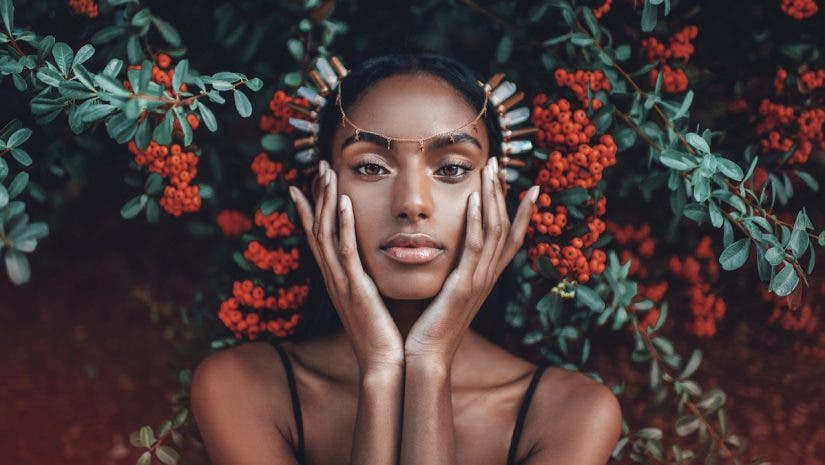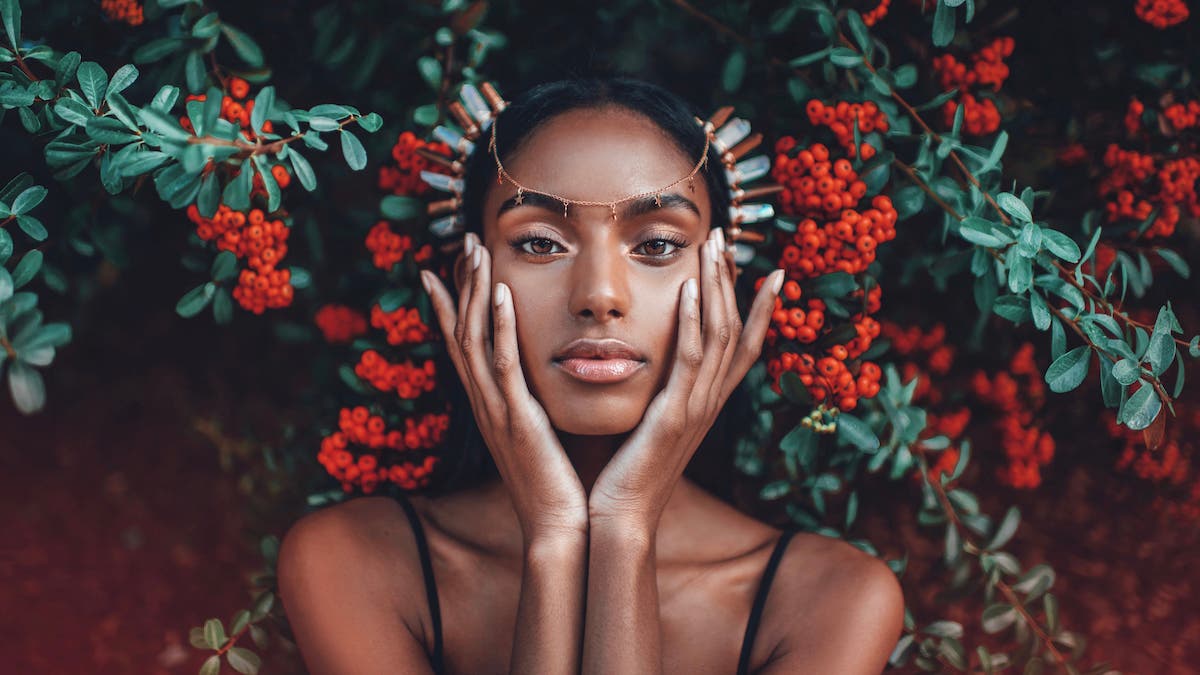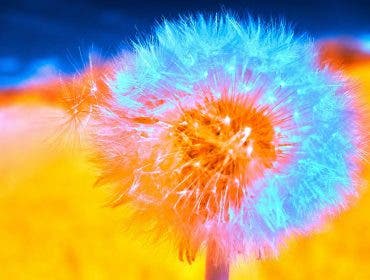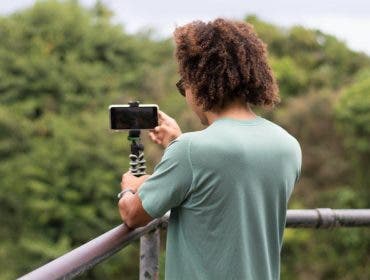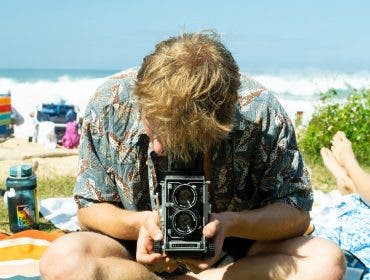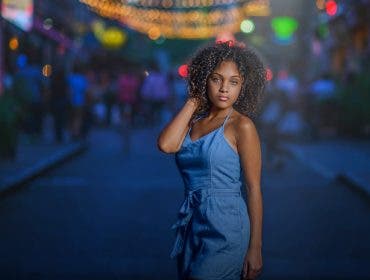I am a freelance photographer best known for my specific aesthetic throughout my portraiture. I often incorporate brightly colored hues and neon lighting that provide a result all my own. But, in this article, I’ll be sharing tips for portrait photography that you can use across any aesthetic.
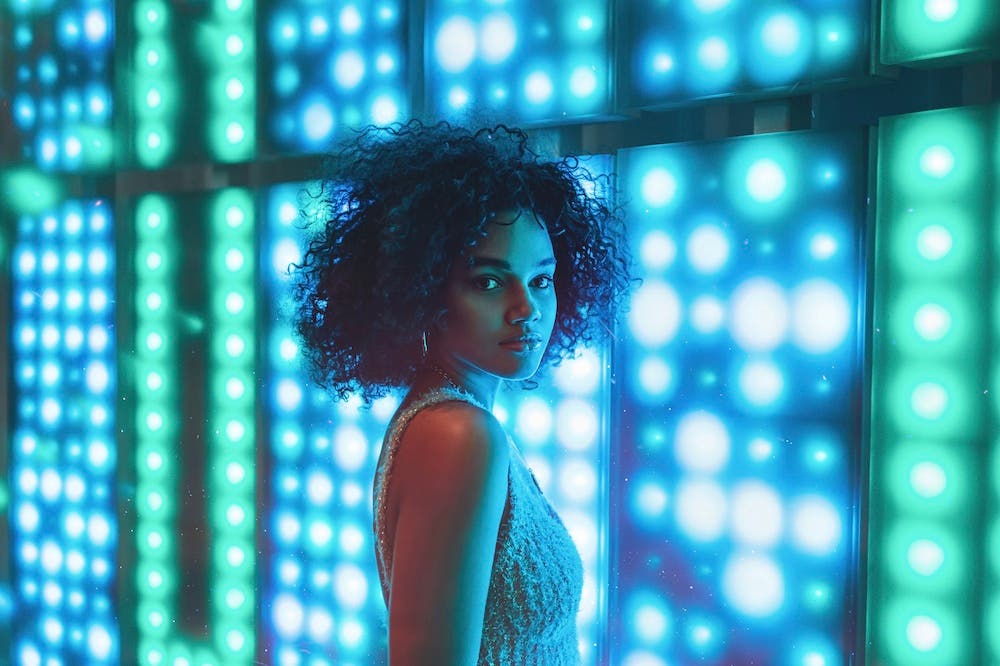
Reach Out to New People
One of my favorite ways to get out of a creative slump is to reach out to new people to photograph. Photography is such a collaborative art form and it’s not just about the photographer. Working with dancers, models and actors has brought my images into a whole new light. When you get in touch with a model or agency, be direct about what you are looking for. Are you inquiring for a test shoot, a commercial shoot or an editorial shoot? Do you have a budget you can offer or would this shoot just be for establishing both of your portfolios? The more detailed you are in this initial stage of the outreach process, the more likely you are to receive a “yes.”
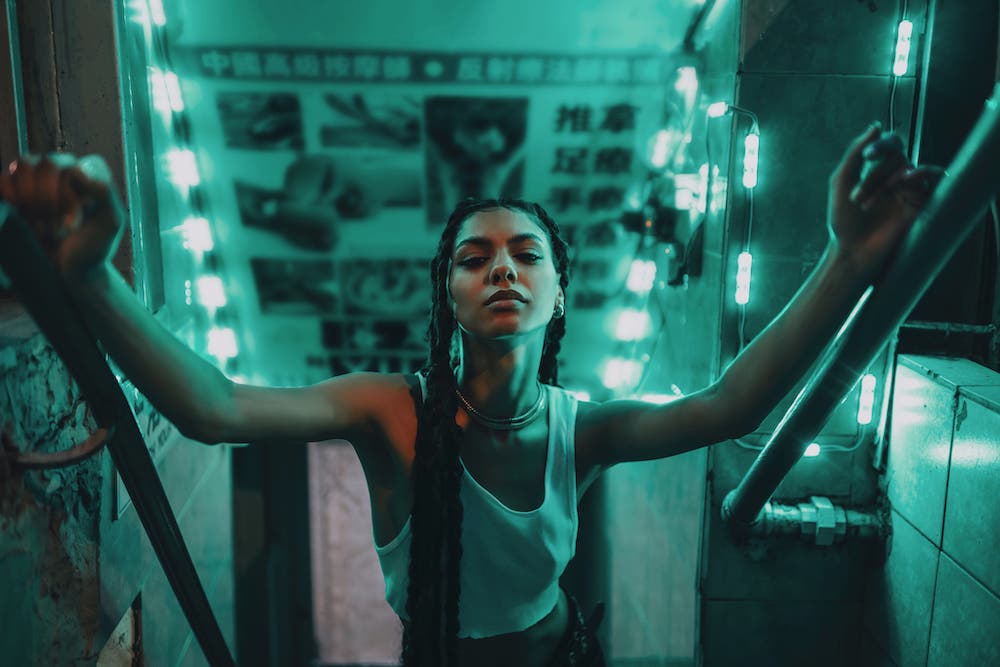
Experiment with Concepts and Posing
Once you’ve locked in a model you’ll want to start thinking about concepts and posing. Be experimental. I always let my subject know that they can be 100 percent comfortable with trying something out of the norm. I’ve found that breaking down this wall helps in the end result. If the subject feels awkward, there’s a good chance the photos will look awkward as well. While starting out, I would save images that had poses I wanted to recreate. This allowed me to reference them later on during shoots.
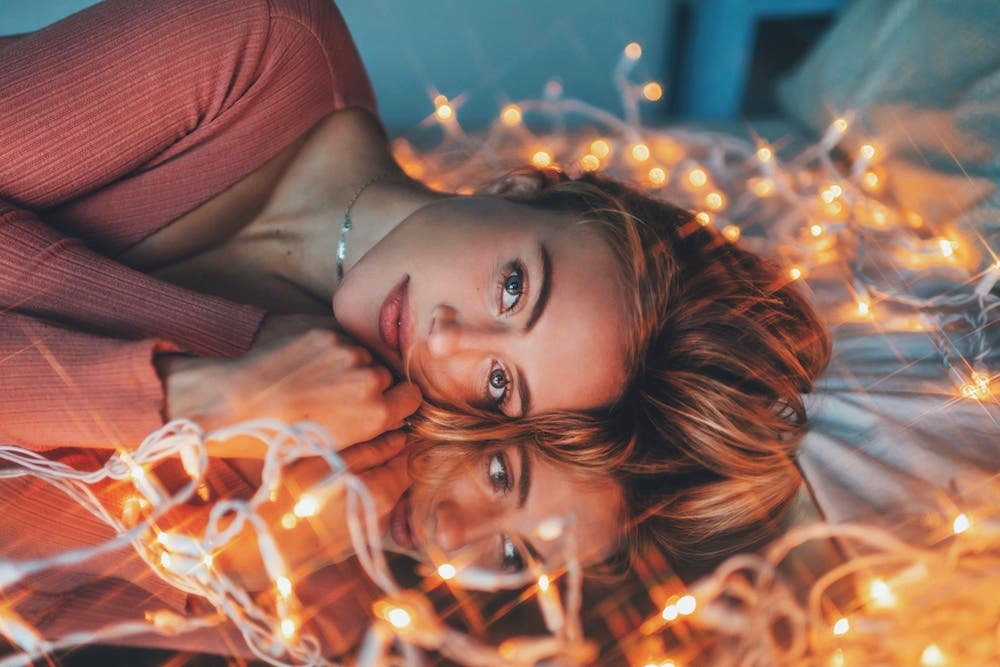
Be Intentional With Your Light
Lighting is also makes a huge impact on your final photos. Be intentional with your light and how it is playing off of the model. If you’re conducting your shoot in natural light, be mindful of what time you’re going to be shooting. Is it midday when the sun is a bit higher and more harsh? Or is it after sunset when the light is softer but a bit darker? All of these factors will affect not only how your model looks, but the settings you’ll have to use to counteract it. A huge role for you as the photographer is to be conscious of these elements and communicate how you intend to correct it.
Are you stuck? Check out How to Take Outdoor Portraits with Just One Light.
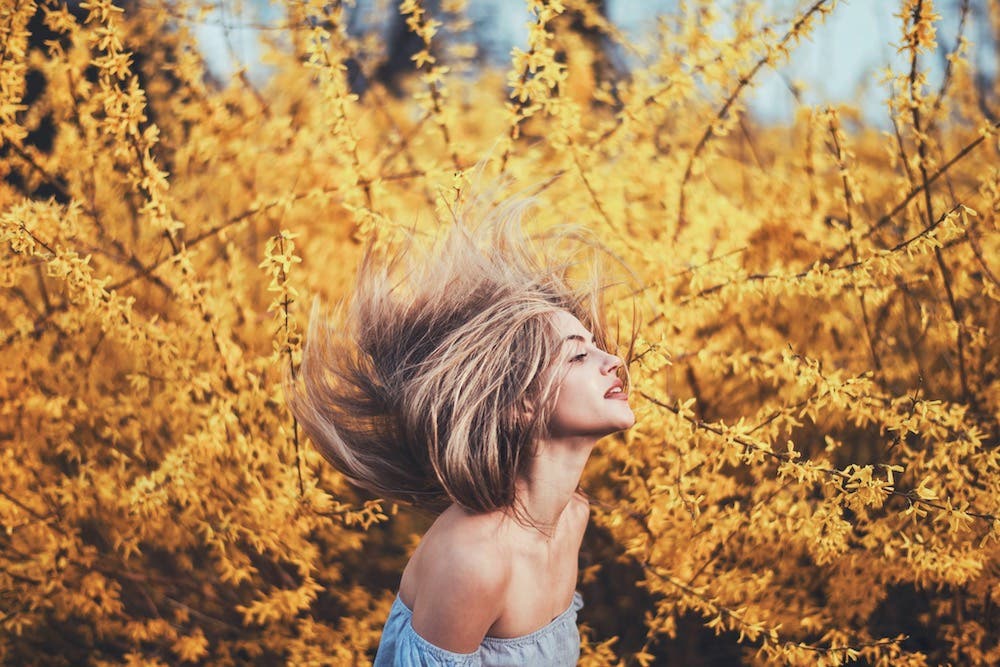
Know Your Camera Well
The best way to work around these kinds of interferences is to learn the ins and outs of your camera. What file format are you shooting in? I execute all of my photoshoots in RAW. This way I’m capturing all of my imagery in an unprocessed manner that contains more color data and information that I can play with in the edit. If not, you risk blowing out highlights and shooting in an unpleasant white balance that may be difficult to correct. RAW images are ideal for most situations, but you must be sure you’re setting yourself up for success. These files are fairly large and detailed, and come with a price. I always bring additional memory cards and invest in external hard drives to properly store them.
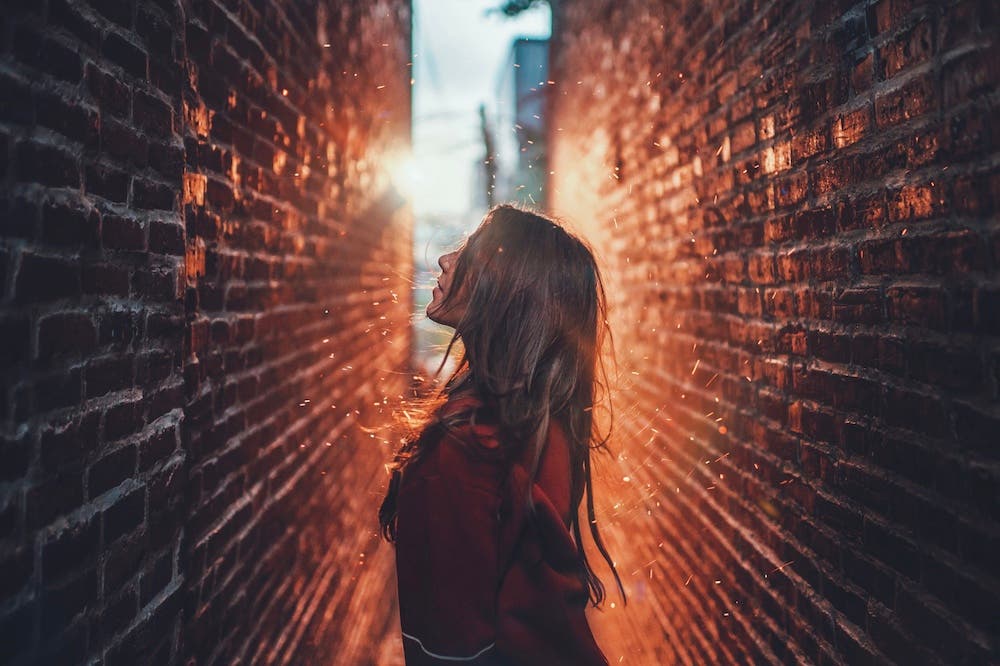
When going to edit my RAW files, I use Adobe Camera RAW. This turns my RAW file into a more flexible file type like a JPEG, TIFF or PSD. This allows me to more easily edit, preview, or share my work. I can tweak key adjustments like temperature, exposure, hue and saturation with hundreds of different editing options. While using this method of post production, I’ve corrected photos that normally wouldn’t be salvageable.
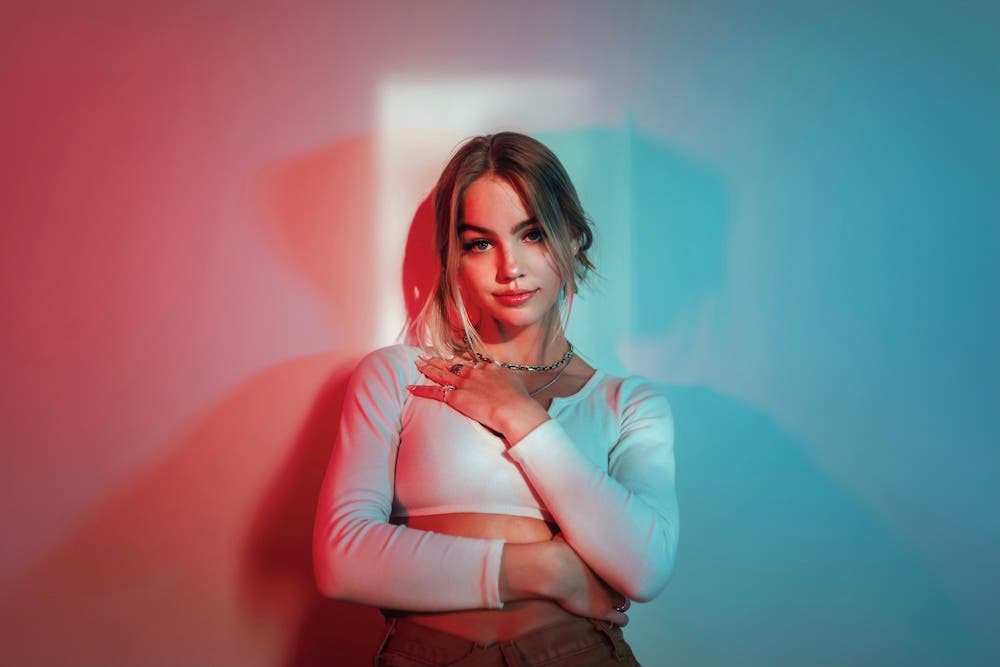
Reflect on Your Previous Work
Editing and sharing my work on social media has become a huge part of my personal workflow and how I connect with my clients. While I’ve always valued a certain kind of consistency when creating, reflecting on previous pieces is even more important to me. It’s easy to get caught up in creating out of habit instead of intention. Like traditional artists do, I always recommend taking a step back from your work to revisit it at another point in time.
Now that you know the portrait photography tips… Are you looking for the right gear for your camera bag? Check out What’s In My Bag: Photographer Brandon Woelfel.
You can see more of my work in AdoramaTV’s new docuseries, THE MASTERS.
